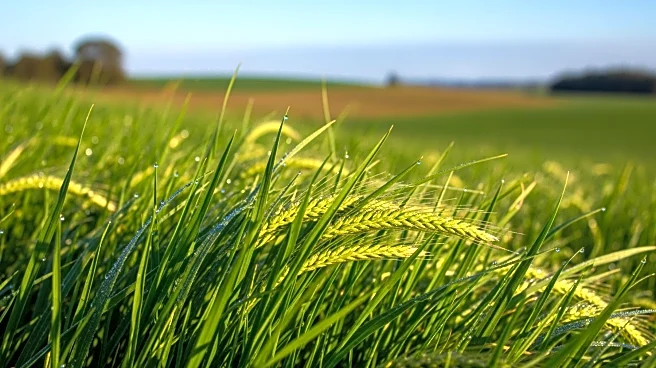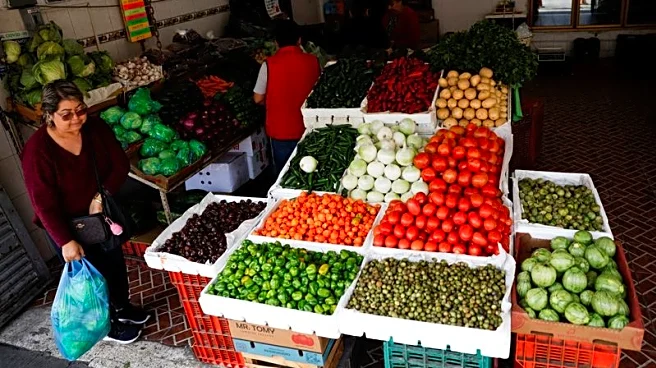What's Happening?
The Manitoba government, in collaboration with Ottawa, has introduced the 'Forage Advantage' pilot program set to begin in the 2026 crop year. This initiative aims to promote sustainable farming practices by offering financial incentives to farmers who
plant perennial forage crops on marginal lands. Farmers participating in the program will receive a 15% discount on Forage Establishment Insurance premiums. Additionally, once the forage crops are producing, further discounts on Basic or Select Hay Insurance, or Forage Seed Insurance will be available through the Manitoba Agricultural Services Corporation (MASC). The program is designed to enhance soil health, improve water management, increase biodiversity, and strengthen farmland resilience against climate change. Eligible crops include alfalfa, clover, and perennial grasses, among others, planted on land classified as 'designated acres' with poor soil conditions.
Why It's Important?
The Forage Advantage program represents a significant step towards sustainable agriculture, addressing both environmental and economic challenges faced by farmers. By incentivizing the planting of perennial forage crops on less productive land, the program aims to improve soil health and water management, which are crucial for combating climate change impacts. This initiative not only supports biodiversity and pollinator habitats but also helps farmers mitigate risks associated with natural hazards like drought and disease. The program underscores the government's commitment to fostering innovation and sustainability in agriculture, potentially leading to more resilient farming operations and long-term environmental benefits.
What's Next?
Farmers interested in participating in the Forage Advantage program must apply for AgriInsurance by March 31 and report seeded acreage by June 30. The program's success could lead to expanded support for sustainable farming practices in the future. Additionally, the province is increasing funding for its Sustainable Agriculture Manitoba (SAM) program by $500,000, further supporting farmers in implementing regenerative practices. As the program progresses, stakeholders will likely monitor its impact on farm resilience and environmental health, potentially influencing future agricultural policies and funding allocations.
Beyond the Headlines
The Forage Advantage program highlights the growing trend towards integrating environmental sustainability into agricultural practices. By focusing on marginal lands, the initiative addresses the challenge of land degradation and promotes the use of land that might otherwise remain unproductive. This approach not only benefits the environment but also provides economic opportunities for farmers, encouraging a shift towards more sustainable and resilient farming models. The program may serve as a model for other regions seeking to balance agricultural productivity with environmental stewardship.
















